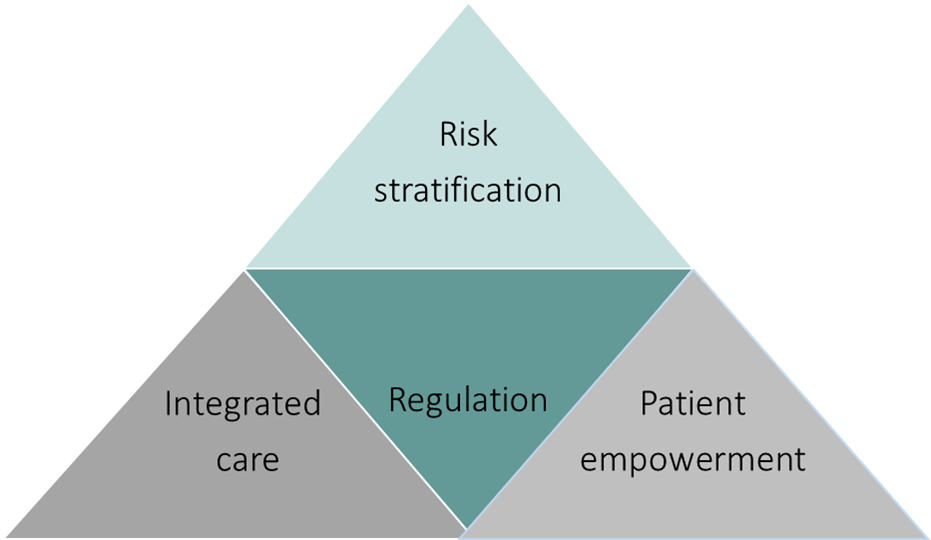JADECARE (Joint Action on implementation of Digitally Enabled integrated person-centered CARE) intends to contribute to innovative, efficient and sustainable health systems, providing expertise and sharing good practices to assist the Member States in undertaking health system reforms and digital transformation. The JA aims to enable the participating national authorities to benefit from efficient solutions in digitally enabled integrated person-centred care developed by original Good Practices (oGPs). JADECARE supports best practice transfer from oGPs to sites implementing these Good Practices (Next Adopters, NA).
Study visits in JADECARE intended to provide NA with the possibility to acquire deep knowledge on specific aspects of the oGPs and establish close contact with the stakeholders involved in the oGP implementations. Core features, context characteristics and the implementation process were analysed and shared by stakeholders of the oGPs during the study visits. Elements of sustainability were highlighted as crucial aspects to be considered for the transfer and adoption, helping NA in understanding the requirements for adoption. The study visits were planned and executed by the oGPs as part of the pre-implementation phase during the first year of JADECARE and served as a base to facilitate the development of future vision practice and the preparation of regionally adapted Good Practices of the NA.
JADECARE study visits were held between April and September 2021 in order to enable NA acquiring practical insight on specific aspects of the oGPs, highlighting e.g. their particular core features as enablers for integrated digitally enabled person-centred care. Within study visits, also contact with stakeholders directly involved in the implementation process was established, thus enabling fruitful exchange of hands-on knowledge.
JADECARE collaborators supporting Work Package 4, Task 4.2 “Knowledge exchange and generation” produced a “Summary report from Study Visits at oGPs sites”. This document is one of the contractually defined milestones of the project. It aims to give an overview and analysis of all processes around study visits, thus including e.g. planning outlines and reporting templates. As a result, it provides a comprehensive repository for experiences and advice from the oGPs.
Key lessons learnt and recommendations, provided with the Summary report of the Study Visits are intended to encourage and support Next Adopters and oGPs in the best possible way. These key learnings have been identified based on the reports’ evaluation and thus e.g. on comparison of oGPs’ reportings on Study Visits regarding
- Their experiences when planning, implementing, pursuing and performing study visits,
- Issues and questions of Next Adopters the oGPs received before and during study visits,
- Answers to questions during the study visits and
- Feedback of NA after the study visits.
Based on these results, the following shared, general recommendations and guidance were generated for the NA of JADECARE, for uptake of new knowledge and understanding into the regional implementation strategies and action plans on digitally enabled integrated person-centred care:
General recommendations and guidance for Next Adopters
- Networking with Stakeholders: A close networking not only within the NA working groups directly involved in the JADECARE project, but also with local social services, getting local ambassadors/ alliances on board from the beginning, creating a “common vision” with them, making them feel “ownership” together with the NA on the project and at the same time foster patients’ engagement with local services as well as promote patient empowerment, was identified as being of utmost importance.
- Securing a good quality data base, at the same time protecting data: The pre-existence of electronic personal medical records, or patient e-IDs, electronic exchange platforms and workflows with secured access to health insurance data and electronic medical records in good data quality is highly recommended. At the same time anonymised or highly protected data via encryption as well as full alignment with the GDPR is necessary.
- Ensuring interoperability and tech support: Well-developed and preferably interoperable IT systems and technical support tools have been reported as being key and therefore implementation urgently advised.
- Analysing data, building on research projects: A sound experience on data analysis research projects prior to the implementation of good practices and their core features is a profound benefit and thus recommended.
- Keeping exchange and discussion within JADECARE transfer Work Packages alive and ongoing throughout the project: It is recommended to use the important repository of questions and answers and issues for debate between oGPs and NA, compiled in the Summary report on Study Visits, as a first base to be constantly adjusted, updated and complemented in upcoming regular and ad-hoc JADECARE meetings and discussions.
